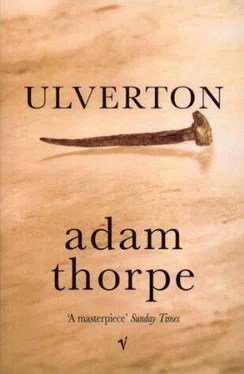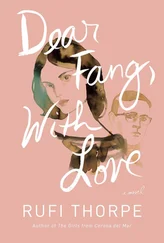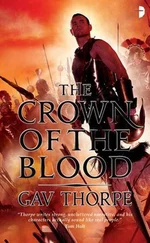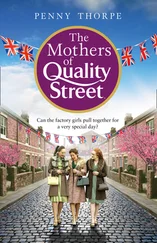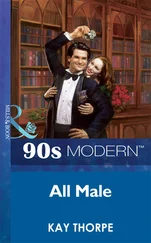Adam Thorpe was born in Paris in 1956. Ulverton , written in 1992, was his first novel and he has since written nine others — most recently Flight — two collections of stories, six books of poetry and a translation of Madame Bovary .
HE APPEARED ON the hill at first light. The scarp was dark against a greening sky and there was the bump of the barrow and then the figure, and it shocked. I thought perhaps the warrior buried there had stood up again to haunt us. I thought this as I blew out the lanterns one by one around the pen. The sheep jostled and I was glad of their bells.
He came down towards me, stumbling down over the tussocks of the scarp’s slope that was cold and wet still with the night, and I could see he was a soldier from the red tunic that all the army now wore, it was said. He stopped at a distance. He had that wary look of one used to killing. His face was dark with dirt, and stubbled.
Deserters had been known to kill. I went on blowing.
He watched me all the time. Then as I turned towards him, he looked away and down into the valley where the village was beginning to smoke.
I saw him side on and I recognised him.
‘Gabby,’ I said.
He turned.
‘I wondered when,’ he murmured, so I could hardly hear. He was the tiredest man I have ever seen.
He sat. He draped his arms over his knees and buried his face in them. Then he looked up at me, smiling.
‘I’ve shook hands with him,’ he said.
‘With who?’
‘General Cromwell. I’ve shook hands with him.’
‘With the General?’
‘Aye.’ He said this with defiance, but I had no cause not to believe him. Whether a man has done a thing or no, I know when he believes he has, and that is all the same in the end.
‘That is a fine thing,’ I said. I sat down next to him and wondered if it was right to tell him. And he looked at me so smiling that I hadn’t the heart. Of course, I wish now I had, but it might not have saved anything. Sorrow is a water that flows however you try to dam it, that is my thought. It will find a way.
‘At Drogheda,’ he said. And do you know, I remember this man as a boy at my table, come in to tell me of some carriage he had seen along the main road, of the white glove that had waved to him, and cast him a penny. And other stories I forget now.
‘At Drogheda,’ he said again.
He wiped his lips that were sore, I noticed.
‘Drogheda?’
‘Across the water,’ he said, pointing at the clouds. He shivered, and I offered him my coat.
He took it. I hoped the sun would strike us soon. Down in the houses smoke broke through mist, piled higher and higher until it whitened with the sun. Up there the larks were warm.
He huddled in the coat. Some taut thing had gone. You could smell his tiredness.
‘At Drogheda,’ he said, ‘in Ireland. I shook his hand, like this.’
He clasped at air and moved his hand up and down. I could see it. I could see the General in this place and I could see Gabby be taken by the hand and have it shook.
The dogs pawed him, and I whistled them off. I reached into my basket and broke a piece of bread and a corner of cheese and handed it to him.
Did he scoff them!
I passed him the firkin and he tipped it back so that the ale runnelled either side of his mouth and down onto his leggings. He coughed and wiped his mouth and I confess I took back the ale double-quick for I had another twelve hours to thirst by. I lived the other side of Ulverton then.
‘Was he a big man?’ I said.
He sighed and licked his sore lips and picked at crumbs. He was thinking.
‘No,’ he said.
I was surprised at this, though Gabby was never a small man himself. Soldiering made him more crookbacked, not less. He looked no different to you nor I.
He turned surly then, and asked why should he be? And I kept out of it because Gabby seemed changed and I was alone, and my dogs then were soft. I fancied he might own a gun under his tunic.
So I said nothing either about the other matter, even when he asked.
‘Anne,’ he said, ‘my Anne.’
He was asking, in his own way. He’d been off so long and all of us thought him dead though I didn’t tell him.
‘You’d best go and see,’ I said.
I stood and fiddled with something — I think a lantern door or maybe a yoke or maybe both, one after the other — anyway, something to show I was busy and maybe I couldn’t talk. I also sent the dogs scurrying after a big ewe on the scarp who was doing no harm there. I am a cowardly man.
I could hear him rubbing his chin, like a saw on a horn.
‘She’s not dead then,’ he said.
‘No.’
‘Not poorly then,’ he said.
I said no, and whistled, and said he’d best go and see. My heart was thumping. I’ll say, like I was a guilty man.
He stood up.
‘I know why you’re sore,’ he said. ‘I know why. I’ll thank you for the food and drink, and the talking, but I need no judgements, William.’
His voice was hoarse.
I shrugged. Then I spoke not looking at him.
‘Best go and see, that’s all I’ll say. I knowed you as a boy, Gabby. You used to sit out sometimes. We looked at the words in our heads and seed if they were God’s words or no, remember? Then you’ve gone out fighting for God’s word on earth and I don’t know if matters have changed, only that the King has lost his head and after Newberry old Joshua Swiffen’s field was smashed and sodden with blood and nothing’s altered as I can see. That’s all.’
I made this little speech much like the parson’s because my heart was thumping and I wished to divert his thoughts from Anne his wife. I think now whether it mightn’t have been better to tell him outright, but I was frighted.
‘You know the farm was broke. Soldiering was how I would set it right.’
‘In heaven or on earth?’ I said.
He smiled at that.
‘What I have sewn into my tunic will see us through,’ he said. ‘I fought for God and Anne so she might have a son that lives and no parish nor more working for Swiffen nor Hort nor Stiff nor any of them. I’ve come right back,’ he said.
He reached into his breeches and pulled out something I thought was gold but when he oped his hand it was a ball of old ribbons that had long ago been red.
‘She were allus dreaming of it,’ he said. ‘She were allus dreaming of her hair all up in silks. Hair black as a raven and all up in red silks, like a lady. And rings on her fingers! Aye. She were allus dreaming of it!’
Those ribbons looked so tattered and pale and torn it was sad, like he had pulled out his own heart. Even his fierceness was not that of love but, as I think it, of anguish.
I paused in my whittling of the yoke (for that’s what I was doing) and nodded my head neither knowingly nor as judgement. I could see the heads he had torn the ribbons from and all the fingers he had maybe cut for rings, if he were telling the truth, and prayed without moving my lips. He smiled and put the clump of ribbons back into his breeches carefully like it was a live thing and not to be hurt. The cocks were hollering from the thatch down there but else all you could hear were the cluckets ringing all over the coomb as the flock grazed. I thought. I thought how quiet we were compared to the noise of soldiering. The business at Newberry had set my sheep off in a canter, miles off.
He took my hand all of a sudden, that had a knife in it, so I dropped the yoke and threw the knife down and took his hand. Then we hugged, and kissed, as old friends, and I smelt the liquor on his skin that was a deep part of him and not just for jollity, and I wondered to myself how he reconciled this with God’s word.
Читать дальше
